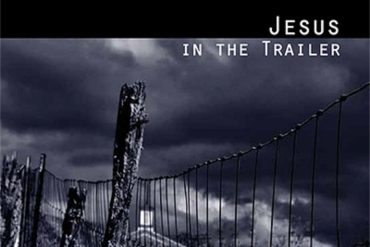Our Interviews Editor Esteban Rodríguez speaks with poet Michael Prior about his newest collection Burning Province (McClelland & Stewart/Penguin Random House, 2020). Clear, lyrical, and always moving, Prior’s book examines identity in the face of changing landscapes, the influence of culture and ancestry on our present and future, and how family can make the “body a star” so that even in the most challenging of times, one can always “stay afloat.”
Esteban Rodríguez: Burning Province, your second collection, centers on “geographical and psychological landscapes,” whether they be of home or of sometimes complex cultural understandings. In what ways does this collection build upon or veer from your first, Model Disciple?
Michael Prior: I think several of the questions central to Burning Province—questions of intergenerational memory, cultural trauma, and the ways in which these forces manifest in my and my family’s experiences—were explored more indirectly in Model Disciple, a book that was interested in masks and lyric sleight of hand. I do think both books live in a space of uncertainty, but the poems in Burning Province are more emotionally direct, more earnest, and more invested in building a particular sensory grammar (smoke, fire, cardinals, the Pacific Ocean, pastoral tropes). In my mind, Burning Province is very much a thematic continuation, but a formal and aesthetic departure from the previous book.
ER: Your speaker has arrived at a place where they can now reflect upon the past, and where they realize that things weren’t quite what they were. I’m thinking of these lines in the poem “Steveston”:
When young,
I believed in hard work’s volition. I no longer
feel the same—only the same worm scrivening
the heart. As a sharper monk once urged,
In all things, the beginning and end
Are most engaging.
The speaker hasn’t reached the “ending” yet, but they nevertheless know that they and their surroundings have changed. How did you approach the idea of growth and change in this collection?
MP: That’s a wonderful question! I’m not sure I have a direct answer. In my experience, the intense and honest attention required by a lyric poem tends to deepen and complicate the questions one has, and then reveals new ones on top of those—that process feels like growth. I suppose one measure of the speaker’s changing relationship with history and family throughout the book is this sense of deepening unknowing. In “Steveston,” the speaker acknowledges the impulse to bookend their experience, and their family’s, with a narrative framework that would ultimately fail to account for the way intergenerational memories resonate, the way the past ruptures the present. I think it’s human to want to see a clear beginning and ending for an event, and to resist that impulse can be exhausting. I’ve heard Ishion Hutchinson say that a poem should abolish time, which I understand as a way of suggesting that a poem might challenge teleology, chronology, stories with neat beginnings and ending—after all, a poem can conjugate multiple tenses simultaneously (as Walcott writes). Indisputably, though, the material world changes: I feel a curious sense of both absence and presence when visiting where the camps once were, and I have the same feeling in Steveston which was once a fishing village with a large Japanese Canadian population but is now a “heritage” tourist destination.
ER: You mention the Japanese Canadian population, and there are many poems that center on the speaker’s identity, specifically how they must navigate their Japanese ancestry and their Canadian environment and experience. Can you describe the importance of identity and belonging in your poems?
MP: Belonging or its lack, is certainly a central focus of the poems; I’ve always struggled to figure out where I belong and why, and the book considers persistent questions about my own sense of self: what about my way of experiencing the world has been shaped by the intergenerational echoes of my family’s forced dispossession and displacement? How is my relationship to certain ethnic, racial, and cultural heritages complicated by my being mixed-race (I partially understand this part of my identity as connected to the legacies of the camps)?
I think it’s interesting you mention the Canadian environment: many of the poems are set on the west coast of Canada, but, in my mind, just as many take place in Upstate New York, where I went to school. I think being across the continent, allowed me to think more clearly about where I grew up and the particular tensions that inform my experience (“Poem After the Gift of an Ammonite” explores how the speaker sees/feels a Canadian landscape ensconced within an American one). There are also several poems that mention or are set at the border between Canada and America—a space where ideas of national belonging are called into question.
ER: As a Mexican American, the idea of belonging really speaks to me, and over and over again I was able to connect with these poems, despite the cultural and geographical differences you and I may have. As you say, writing these poems led to questions about the sense of self, and what do you hope they lead to for readers?
MP: That’s wonderful to hear, Esteban (and the feeling is mutual: I was moved by Dusk & Dust)! Emily Jungmin Yoon has talked about how, for her, poetry is a way to theorize the self—a definition that resonates with me. I hadn’t thought much about what a reader might take away from the collection: it’s a familiar thing to say, but I wrote the book I wanted to read. I guess I hope that readers find a connection (or at least challenge themselves to) and gain some sense of how the past lives in the present. I hope, too, that the book’s language is immersive and precise, and that it offers glimpses of the complicated truths of my experience.
ER: What’s the most important thing that you have learned about being a poet while writing the collection?
MP: I’m not sure I had a singular salient revelation about craft or about concept while writing these poems, but as I mentioned, I was much more conscious and deliberate about the way the poems work to build a sort of sensory grammar that I hope becomes increasingly complex as the collection progresses. I wanted the book to be as brief and as immersive as possible. This wasn’t something I had thought as much about with my first book. I tried to really do what I always tell my students: treat the poems as acts of discovery, which for me, meant learning to not perform any sort of confidence or certainty—I’m often impressed by poems whose speakers see the world, themselves, with such surety, but that hasn’t been my experience of the world.
ER: Rereading your collection (again because it is so good!) I can’t help but go back to the opening lines of “Poem After the Gift of an Ammonite”:
I saw my imagined nation nest in yours.
Flurries spiralled across the windshield:
pines bent their back into the wind. Here,
where nothing new falls or grows,
where the weather bruises into kin,
and where each approaching car
glows a backlit aquarium, I wondered what it meant–
this gift.
You’re able to capture moments that might go unnoticed in the view of others, and your work is indeed a “gift.” Are there any new poems that you are working on or projects readers can be expecting in the future?
MP: Thank you! I haven’t much time lately for new work, but I am working on a series of longer poems that focus more on the present than the past, while still interrogating some of the same questions explored by Burning Province. The poems seem to oscillate between highly formal and highly discursive. I’m trying to just give myself permission to write whatever I can and see where it leads.
ER: Are there any words of encouragement, wisdom, or advice that you can offer readers and writers?
MP: I’m not sure I have any advice for readers, but for writers I will repeat something that Eduardo C. Corral once told me: read widely of your contemporaries but have your deepest conversations with the dead.





